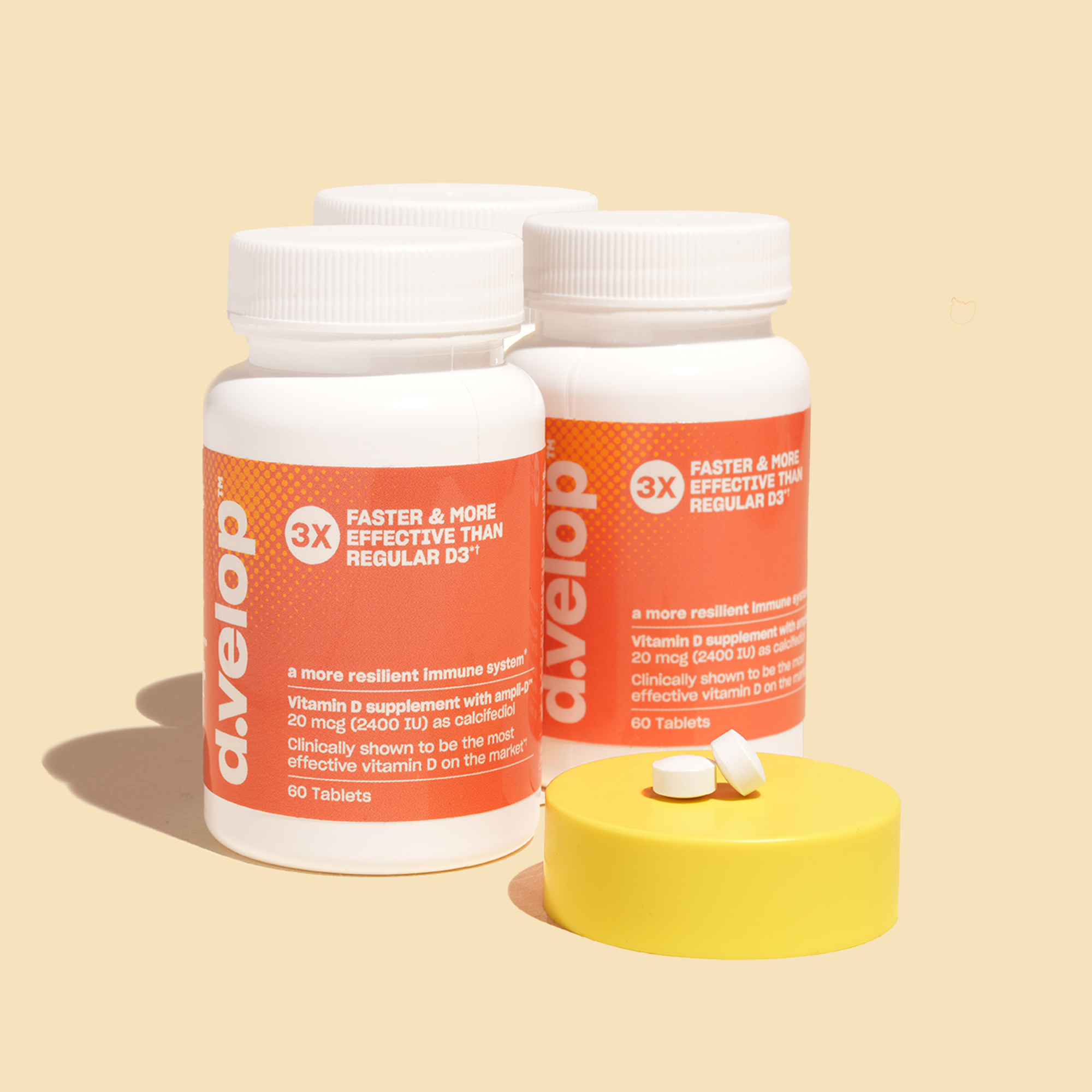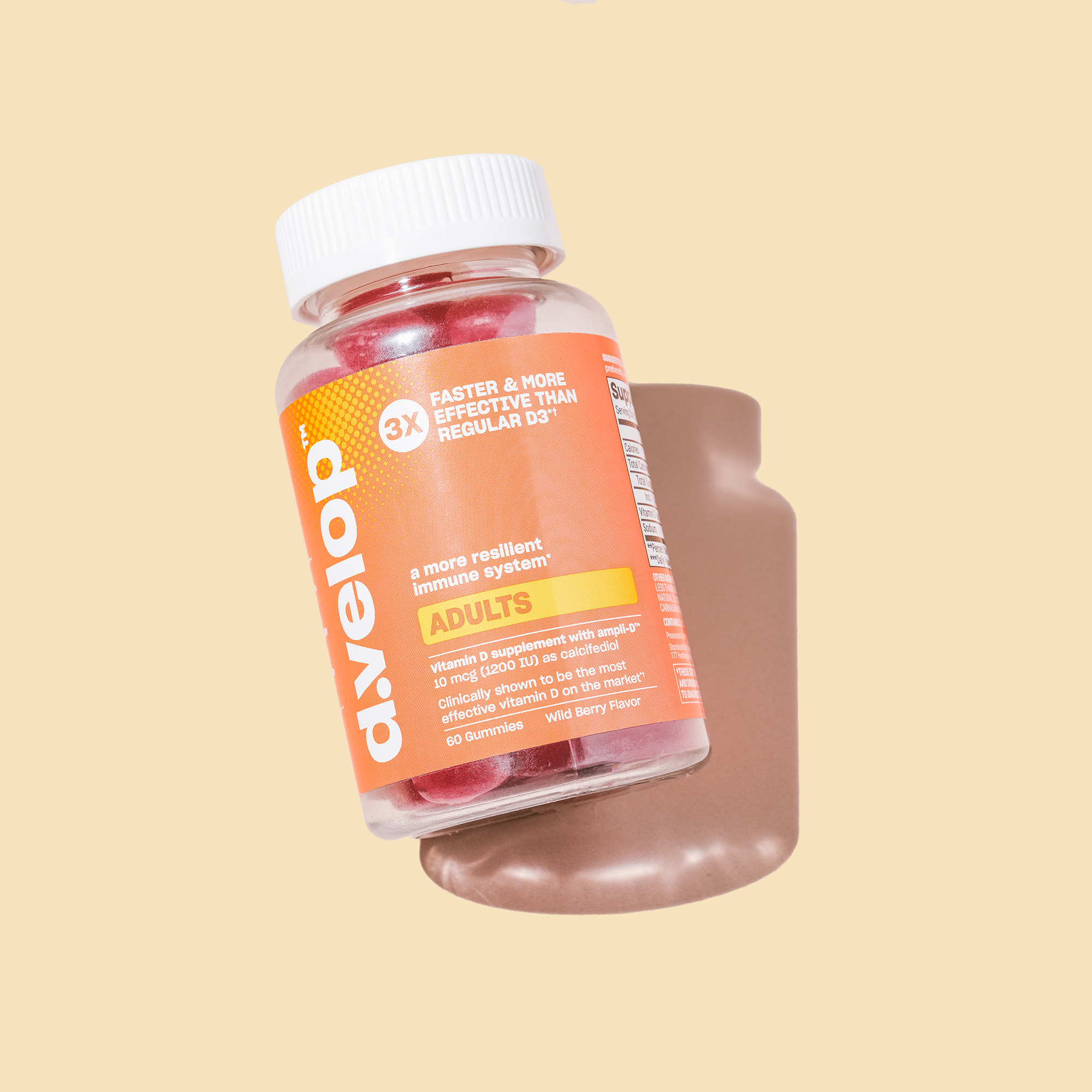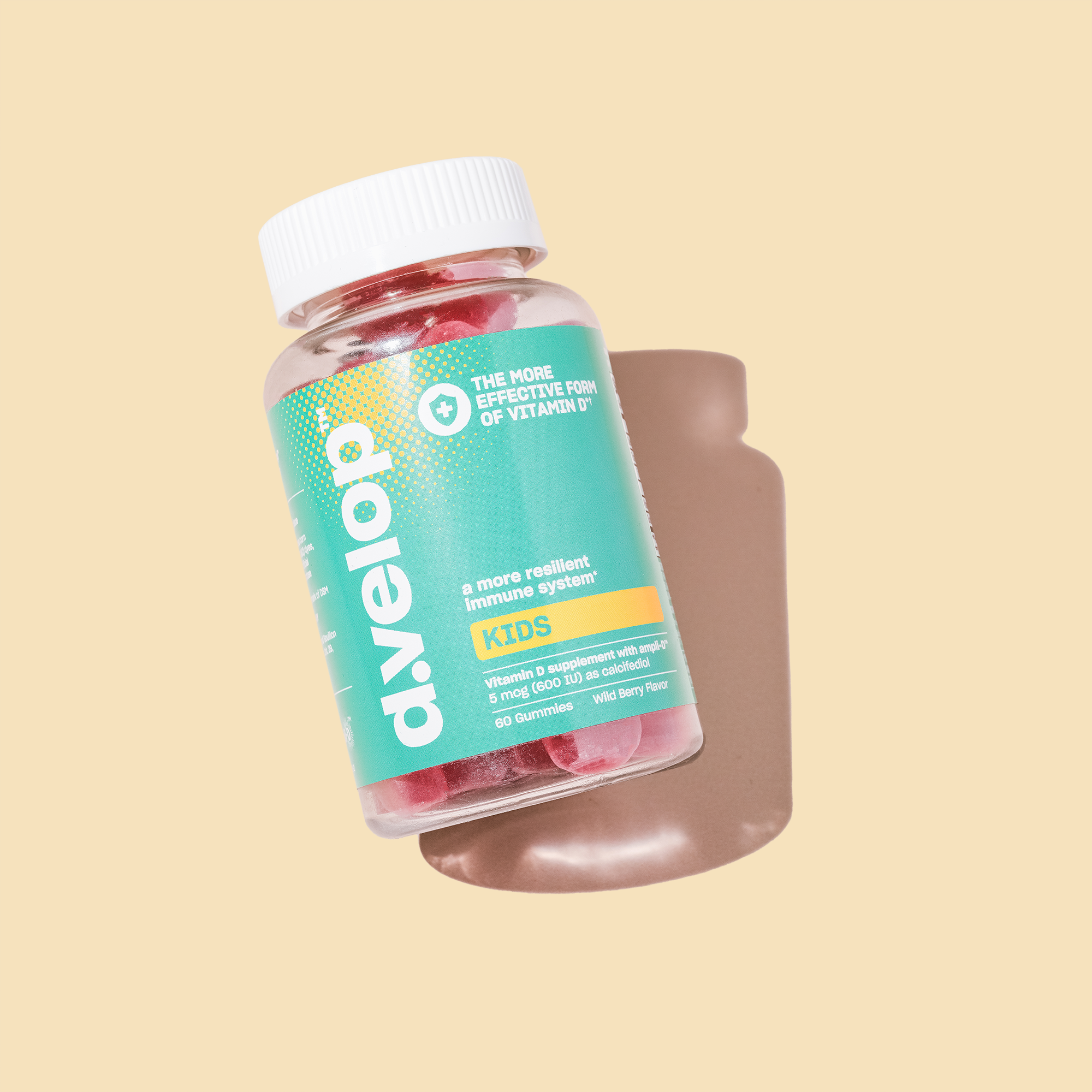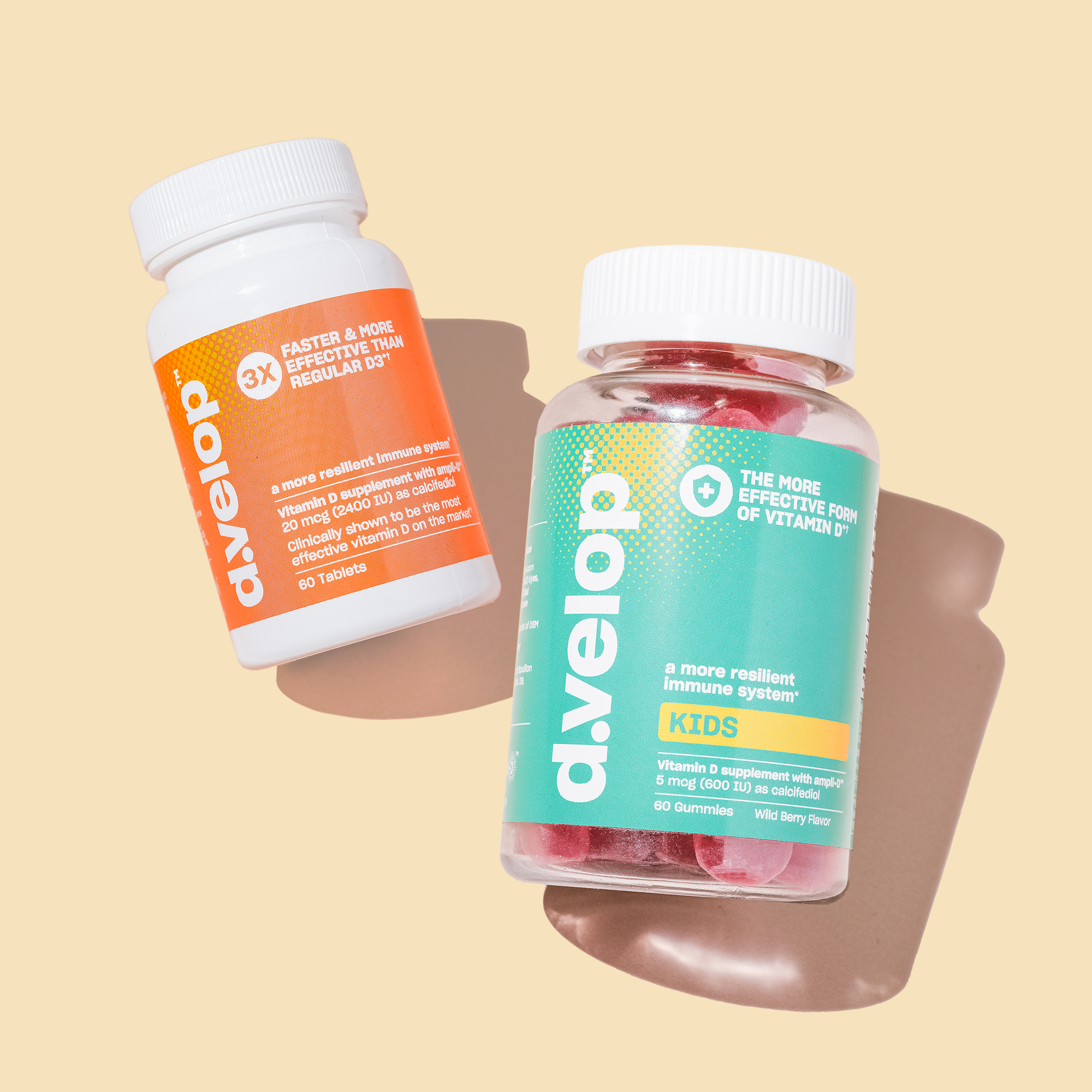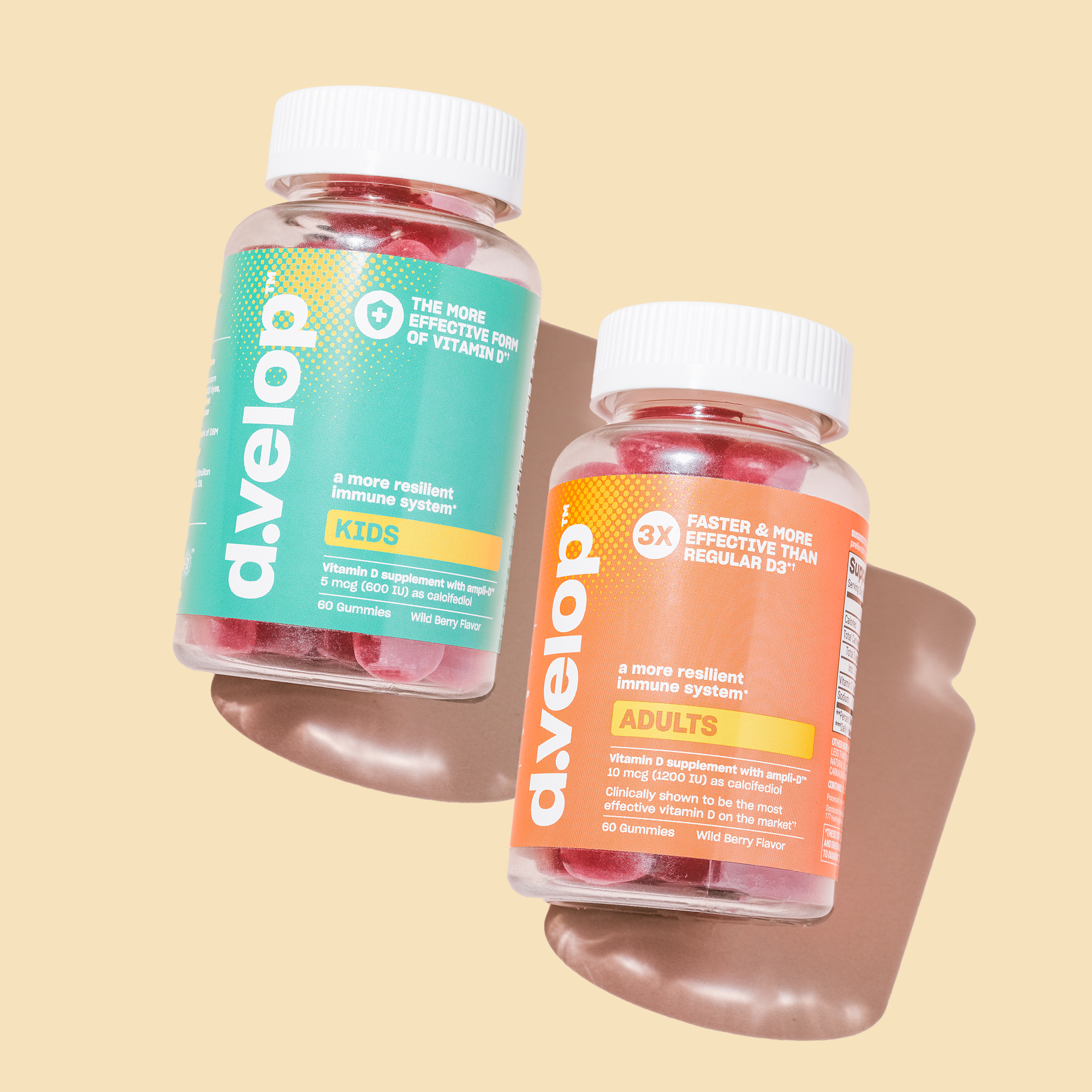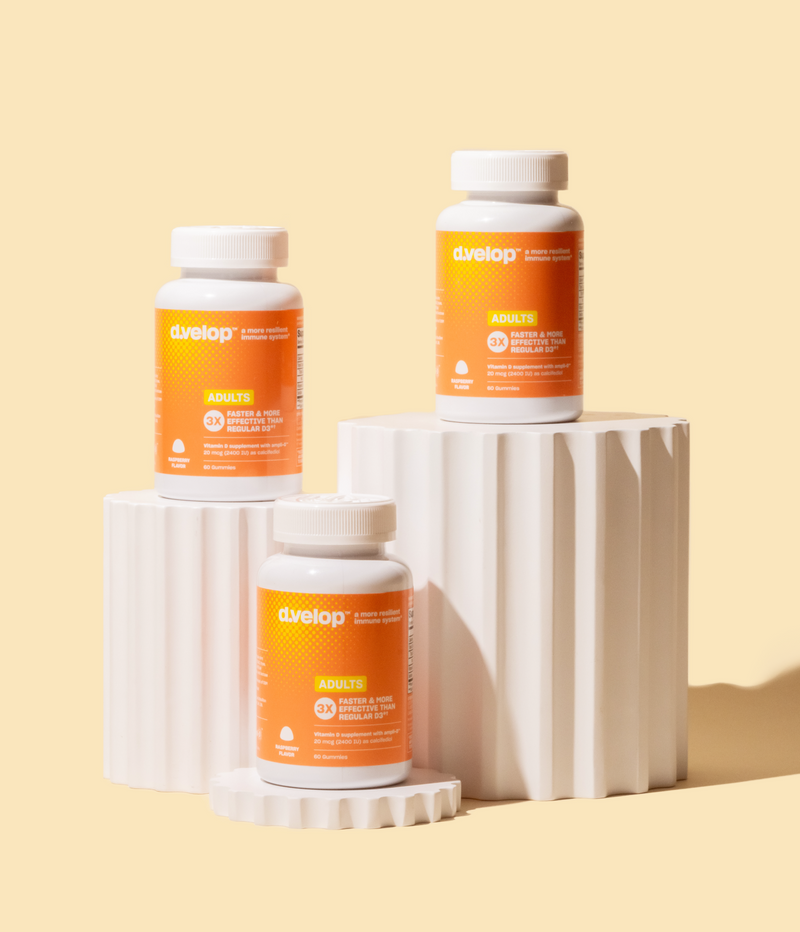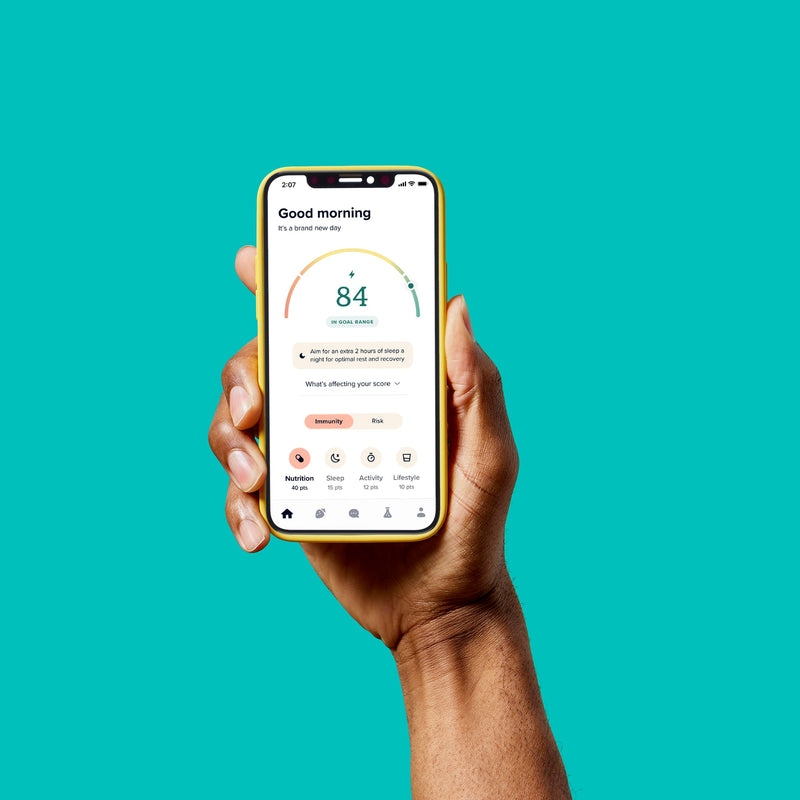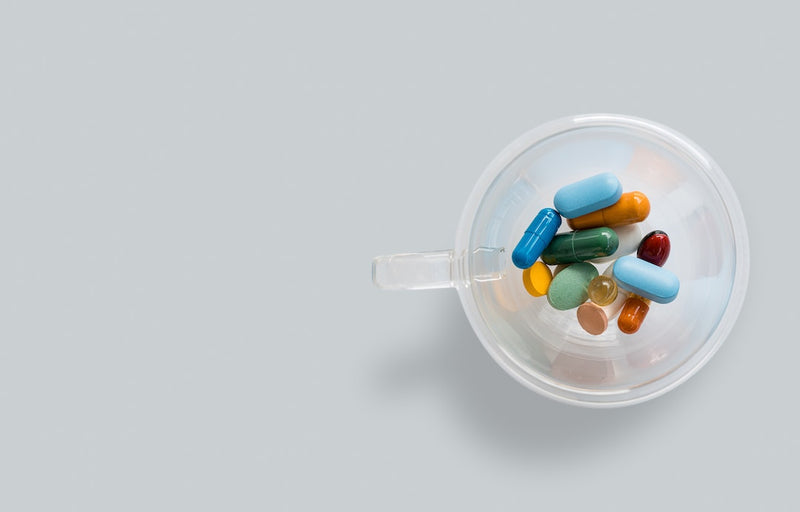If you’re like anyone we know, you’ve likely started your research regarding vitamin D supplementation on the internet. With that comes the challenge of decoding different terms, such as vitamin D vs D3. So you may be asking, what is the difference and why does that matter when I’m choosing a supplement? We’re here to help. In short, Vitamin D and D3 are in fact the same, but different, although in subtle ways. Read on to learn more.
What is the difference between vitamin D and vitamin D3?
There are two types of vitamin D: vitamin D2 and vitamin D3. Both forms of this nutrient can be referred to as“vitamin D.” So the question is not what the difference is between vitamin D and D3, but rather what is the difference between vitamin D2 and vitamin D3?
Vitamin D3:
Also known as “cholecalciferol”, this is the type of vitamin D that your body creates when exposed to UV rays from sunlight. It is found in animal sources of foods, such as fatty fish (salmon, tuna, mackerel), egg yolks, and liver.
Vitamin D2:
Also known as “ergocalciferol”, this is the type of vitamin D that the body cannot produce. It comes mainly from plants, and plant-based foods such as mushrooms. Vitamin D2 is formed not when your skin is exposed to the sun, but when plants are exposed to the sun’s UV rays. This type of vitamin D is less expensive to create than vitamin D3, which is why it is typically used when fortifying foods such as breakfast cereals, milk or orange juice.
Which form of vitamin D is better?
While both forms of vitamin D are effective at raising your vitamin D levels, oftentimes doctors may prescribe vitamin D3 rather than D2. Vitamin D3, is the natural form of vitamin D that your body produces when exposed to sunlight. Vitamin D2 is not naturally made by the body.
To be absorbed into the bloodstream, and activated in order to most effectively do their jobs, both vitamin D2 and vitamin D3 need to pass through the liver and kidneys to be processed. However, there is a unique form of supplemental vitamin D called calcifediol, which bypassess the liver and is ready for immediate absorption into the bloodstream. Calcifediol is the form of vitamin D that is produced after your body processes cholecalciferol. Calcifediol has been clinically shown to be 3x faster and more effective than regular vitamin D3 supplements when it comes to improving vitamin D levels.†
Is it okay to take vitamin D3 every day?
You’ll want to check with your doctor or healthcare provider on that! They’ll be able to look at your current diet, and lifestyle alongside your vitamin D levels in order to determine if a vitamin D supplement is appropriate for you. Taking a vitamin D test is the only way to understand where your vitamin D levels are. From there, they will likely also suggest an amount of vitamin D that is right for you.
The amount of vitamin D that is taken each day is the key to healthy living. Rather than over or undershooting your intake, there are RDAs (recommended daily allowances) in place to help people get the proper amount of vitamin D for the best chance at overall health and immune support.*
What happens if you aren’t getting enough vitamin D?
Suboptimal levels of vitamin D can lead to a vitamin D deficiency, which may or may not have symptoms and, if left unchecked, could result in long-term damage to the body. A person experiencing symptoms of a vitamin D deficiency may experience muscle weakness, bone or joint pain, or fatigue. There are many vitamin D benefits, such as bone, muscle and immune health. Without adequate vitamin D levels our body cannot effectively build and protect our bones and muscles or support our immune system in doing its many jobs.
Concerned about your vitamin D levels? Check out our vitamin D test kit for a convenient, at home way to check your vitamin D levels.
How can I start feeling my best?
When it comes to comparing vitamin D vs. D3, the bottom line is that aiming for sufficient vitamin D levels is the overall goal. With everything else to worry about, find a supplement that works efficiently to get your body back on track and get you feeling great.*
Get your d.velop ™ vitamin D supplements online now, and improve your vitamin D levels 3x faster and 3x more effectively than conventional vitamin D.*†
†Clinical studies have shown that ampli-D™ can achieve optimal vitamin D status (30 ng/mL) on average 3X faster, and is 3X more effective, compared to the same mcg amount of conventional vitamin D3. Source: Quesada-Gomez and Bouillon (2018) Osteoporos. Int. 29, 1697-1711.
Quesada-Gomez and Bouillon (2018) Osteoporos. Int. 29, 1697-1711.
Sizar et al. 2021. Vitamin D Deficiency. StatPearls. Treasure Island (FL): StatPearls Publishing.
Aranow C. Vitamin D and the immune system. J Investig Med. 2011;59(6):881-886.
